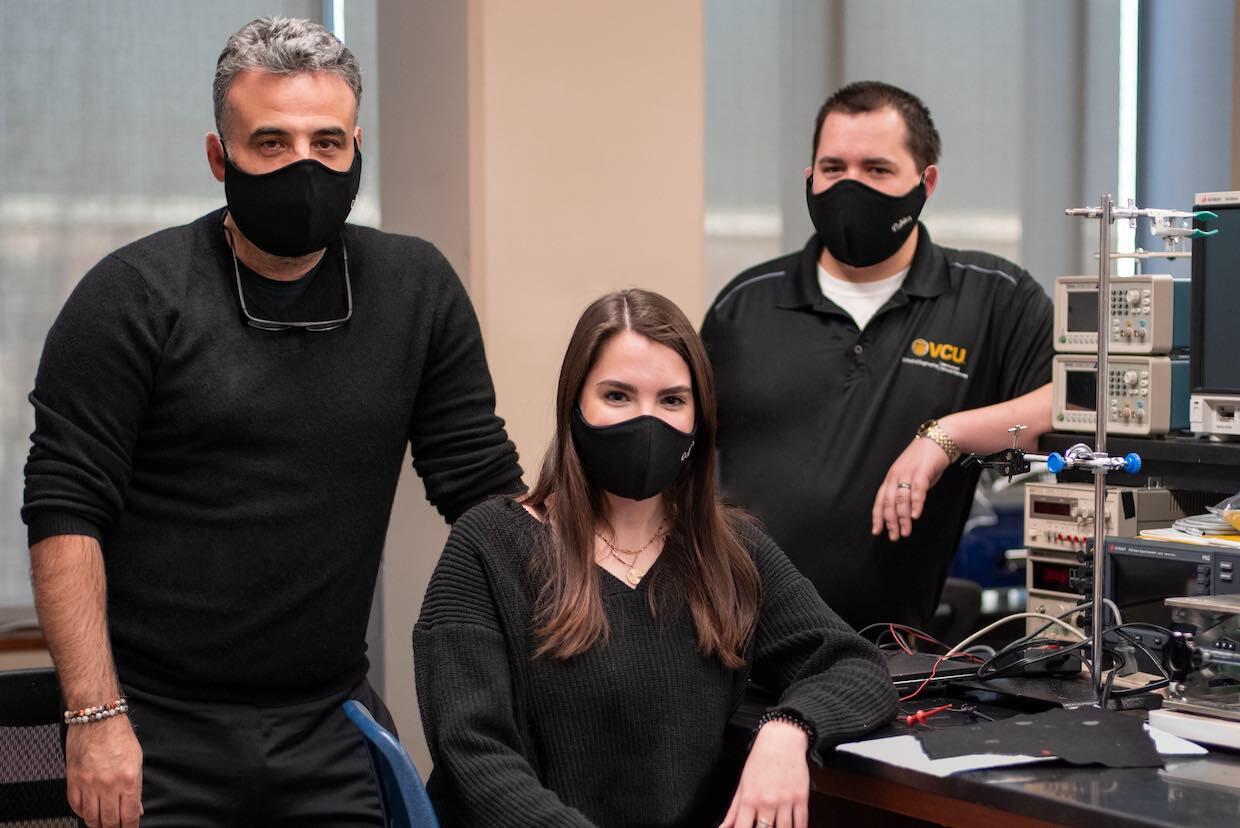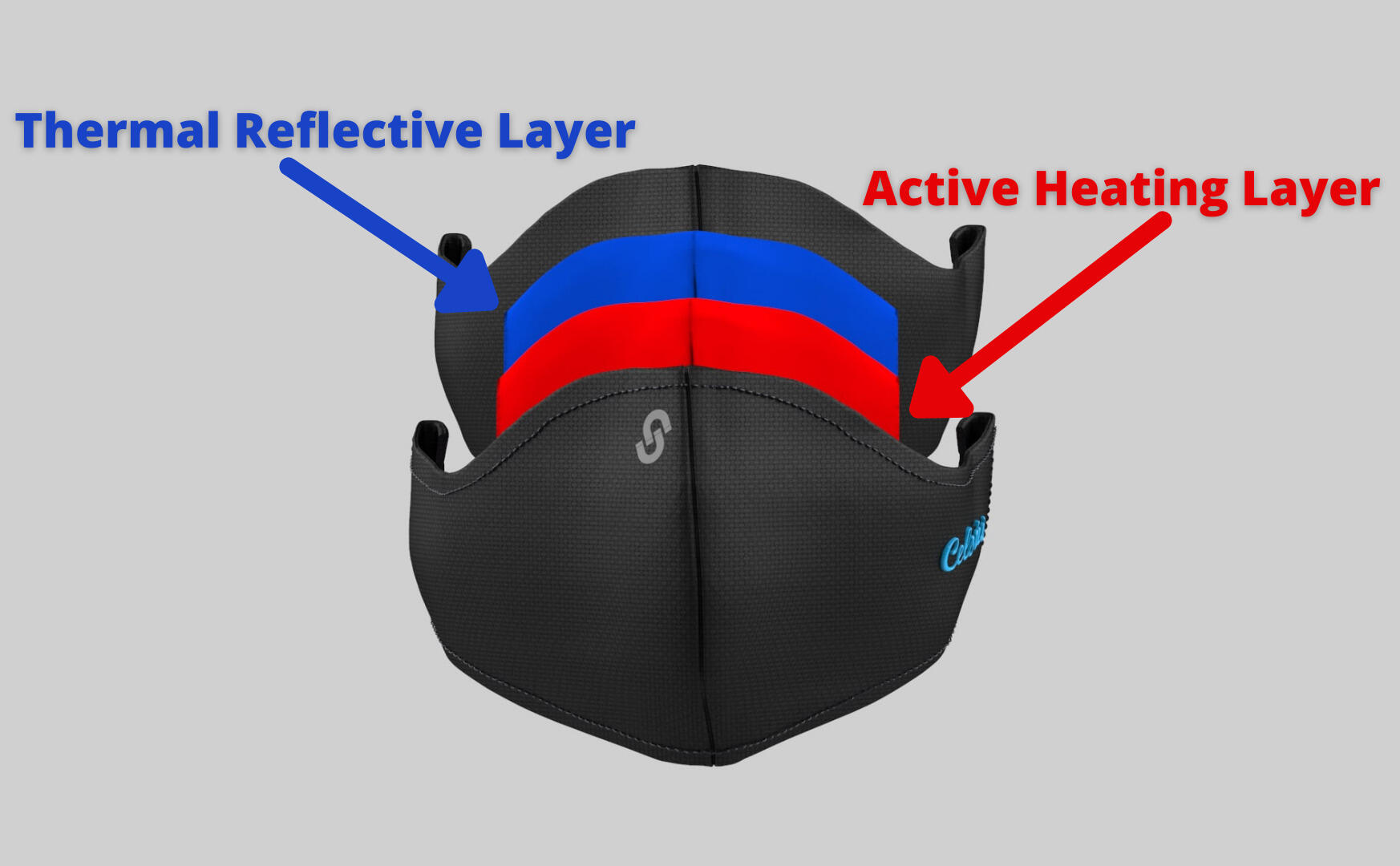
March 16, 2021
Hot and cool: TekStyle, a startup by VCU Engineering students, wants to optimize your mask
Share this story
Face masks are part of everyday life these days, with little sign of going away soon.
TekStyle, a startup run by students in the College of Engineering at Virginia Commonwealth University, is designing a new face mask that protects the wearer in two ways. In addition to forming a physical barrier against airborne pathogens, TekStyle’s “Celsius” mask also uses heat in an attempt to create a hostile environment for microorganisms and viruses such as COVID-19.
“The concept is based on studies that show a significant decrease in coronavirus infectivity when [the virus] is heated to 80 degrees Celsius [176 degrees Fahrenheit] for one minute,” said McKenzie Piper, TekStyle’s CEO and a biomedical engineering undergraduate student. “That’s why we branded it the ‘Celsius’ mask.”
Jonathan Lundquist, an electrical and computer engineering doctoral student, teamed up with Piper to figure out how to use electrical engineering principles to build a heated outer surface on a soft, comfortable mask. Their mentor is Erdem Topsakal, Ph.D., a professor and chair of the Department of Electrical and Computer Engineering.
“We spent months brainstorming back and forth about how to safely incorporate heating elements into the mask,” Piper said. “After going through rigorous research and development, we came up with a design that is optimized with both user comfort and protection in mind.”

The Celsius mask is composed of four layers. Its inner and outer layers are a soft rayon, nylon and spandex blend. Beneath the outer layer is the active heating element that provides self-cleaning at regular intervals. Between the innermost layer and the heating element is a heat-reflective layer that creates temperature differentials for user comfort.
“Except the heat-reflective layer, the entire mask is made of a lightweight textile, so it feels comparable in weight to a regular cloth mask,” Piper said.
Lundquist is designing the electrical components.
“Designing electronics to work on a fabric is very challenging,” he said. “The shape of the print, the ink and the fabric all have an effect on the stability and conductivity of the circuit.”
After going through rigorous research and development, we came up with a design that is optimized with both user comfort and protection in mind.
A pocket-sized charger connects to the mask with a wire. The user can keep the charger connected while wearing the mask or wear it without the charger for shorter periods.
The mask also self-cleans while in use. There’s even a logo that changes color during the cleaning cycle. It can be programmed to self-clean at different intervals, depending on how safe the user feels in a given setting.
VCU has filed a provisional patent on the technology. The inventors formed the TekStyle startup and are now accepting pre-orders. Managing price point, continuous improvement, scale-up and public relations are just a few of the skills Piper has developed as the company’s newly minted CEO. She credits Topsakal with helping her navigate the role.
“He’s such a great mentor, and I've felt really supported by him,” she said. “He has business education and experience in his background and he’s one of those people you can call on anytime, with any questions, and he's always willing to support students.”
Subscribe to VCU News
Subscribe to VCU News at newsletter.vcu.edu and receive a selection of stories, videos, photos, news clips and event listings in your inbox.







